#*greek mythology
Text

the underworld in a nutshell
#epic the underworld saga#epic the musical#jorge rivera herrans#the odyssey#odysseus#greek mythology#greek myth memes
1K notes
·
View notes
Text
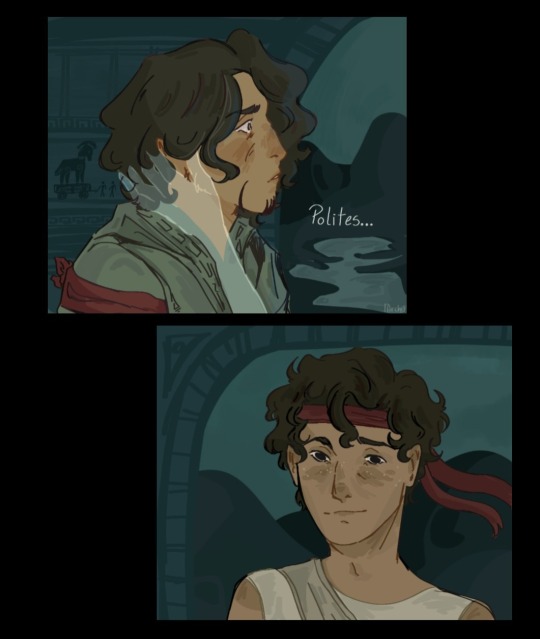
Well, i'm not okay. Y'all can't be either.
.
.
#greek mythology#epic the musical#epic the underworld saga#underworld saga#polites#odysseus#epic the musical fanart#fanart#digital art
998 notes
·
View notes
Text
Odysseus: the Gods have allowed me to live another day and I’m going to make it everyone’s problem
The Gods, getting ready to boot him to Calypso’s island: actually we did not allow that
#I was thinking of this while listening to Monster#epic the musical#the odyssey#odysseus#greek mythology#the underworld saga#epic the underworld saga#epic the musical incorrect quotes
671 notes
·
View notes
Text

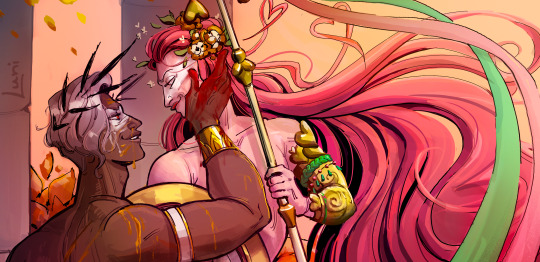
Aphrodite Areia and her main worshipper 💕😊
#hades game#hades 2#hades ii#hades supergiant#aphrodite#aphrodite areia#ares#aphrodite x ares#ares hades#aphrodite hades#greek mythology#myart#tw blood
413 notes
·
View notes
Text
Polites' reprise sounds so happy and comforting. It's like Polites' spirit isn't even sad or upset that he passed away. Like he sees Odysseus traveling in the Underworld and he just wants to say hi, wants to remind him of his advice. He doesn't regret taking the blow that killed him. I can easily picture him waving with a smile, then gesturing for Odysseus to keep going, like "It's okay, you have important things to do. We'll have all the time we want someday. Take care".
311 notes
·
View notes
Text
To be fair to Polyphemus, if a bunch of strangers broke into my home and killed and ate my pet(s), I would probably try to kill all of them too. I wouldn't care how hungry they were at that point. If you had waited five minutes for me to get home I would have made you some sandwiches, but NoOoOo.
You're MY lunch now, motherfuckers.
#the odyssey#epic the musical#epic the cyclops saga#greek mythology#if they had just taken a moment to properly look around first they probably would have realized the cave was lived in#but nooooo they had to kill the sheep immediately and without thought for why those sheep were there
272 notes
·
View notes
Text

a little tribute to my new fav song from the epic musical
#epic the musical#my art#art#digital art#fanart#illustration#artists on tumblr#procreate#portrait#odysseus#the odyssey#greek mythology#greek gods#greek myth art#epic the underworld saga
282 notes
·
View notes
Text



*SCREAMS* -cough cough- (I’m empathizing with Odysseus rn)
And screaming, because I can’t believe that my favourite song from EPIC is released (No Longer You)
#epic the musical#the underworld sagÁ#jorge rivera herrans#odysseus#the odyssey#fanart#artist on tumblr#digital art#digital artist#greek mythology#art#mircsy
323 notes
·
View notes
Text
Fascinated and devastated by EPIC: The Musical flipping the moral script of Odysseus' arc, yet coming to the same conclusions.
There's Classic Odysseus, who accepts that his fate and the fate of his men are out of his control. Classic Odysseus, who knowingly sacrificed six men to Scylla and accepted the cost without second thought. Classic Odysseus, who mourns his men then blames them for their own deaths because of disobedience or cowardice or hunger, comparing them to the goats herded on Ithaca.
And there's EPIC Odysseus, who from the start chafes against the will of the gods in favor of his compassion. EPIC Odysseus, who does not accept that his fate and the fate of his men are out of his control and suffers because of it. EPIC Odysseus, who is clever as ever, yet reckless with his heart.
But they are not so different as that. Troy did make Odysseus kinder. Patroclus demonstrated to them all how compassion is more honorable than any act of glory when he lied and took up arms and fought without thought to his own prestige, but only so that the slaughter of his friends would end. Odysseus saw the horrors committed after Troy's walls fell. He--the liar, the schemer, the man of many turns--understood the dishonor more than anyone and refused to repeat it for the sake of others.
They both come to understand that the wicked, vicious, ruthless aspect of their nature is acceptable when used in defense of their own. They slaughter their enemies with honor, but they will slaughter their enemies. They draw the line in the sand. Every man will be given the chance to prove their honor--hospitality and strangers, it always returns to hospitality and strangers, Zeus is the god of both and demands their sanctity--and every man who crosses that line will prove himself an enemy. And enemies will be slaughtered and sacrificed like cattle.
Ruthlessness is mercy--mercy for Penelope and Telemachus and Laertes who have suffered by his absence, who survived twenty years unprotected and three years under siege only by Penelope's cleverness. Not even to mention Ithaca and its people left without a king. Who else could have saved them? With Laertes too old and Telemachus too young and Penelope confined to only her loom and her tongue as weapons.
Were they worth the deaths of 600 soldiers? 108 young men? 12 enslaved women?
Athena, and through her the epic itself, declares that they are worth the bloodshed, for they are on the right side of the line.
#don't mind me just breaking down a little#epic the musical#epic the underworld saga#odysseus#the odyssey#greek mythology
204 notes
·
View notes
Text

My honest reaction to no longer you
#epic the musical#odysseus#the oddyssey#tagamemnon#the iliad#greek mythology#the circe saga#epic the ocean saga#epic the cyclops saga#epic the troy saga#epic the underworld saga#tiriseas#Penelope#no longer you
174 notes
·
View notes
Text

Sad boi Odysseus
197 notes
·
View notes
Text
percy: aww, what's your dog's name?
monster: spartacus
percy, yelling to grover: TRY SPARTACUS!
grover, on the computer: DIDN'T WORK!
monster:
percy: what's your favorite number?
#incorrect quotes#percy jackon and the olympians#percy jackson#pjo incorrect quotes#pjo tv show#walker scobell#incorrect pjo quotes#pjo series#grover underwood#grover pjo#percy series#pjo fandom#percy and grover#annabeth chase#leah sava jeffries#rick riordan#incorrect riordanverse#riordanverse#greek mythology
188 notes
·
View notes
Text

He is the monster rawr rawr 🦖🦖
#greek mythology#the odyssey#odysseus#epic the musical#epic the circe saga#the underworld saga#fanart#digital art
670 notes
·
View notes
Text

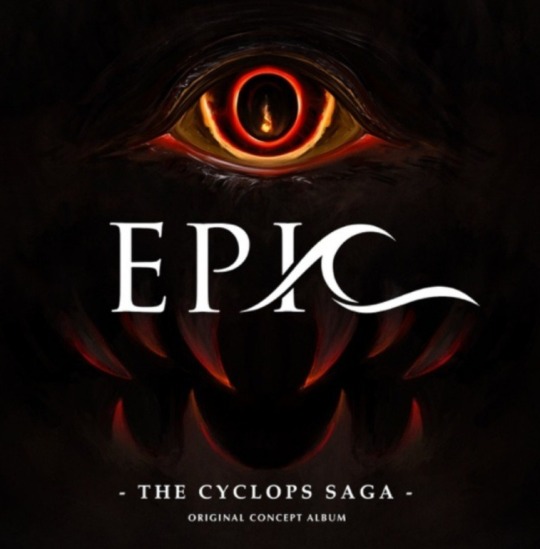



All the Act I covers in one post!
152 notes
·
View notes
Text


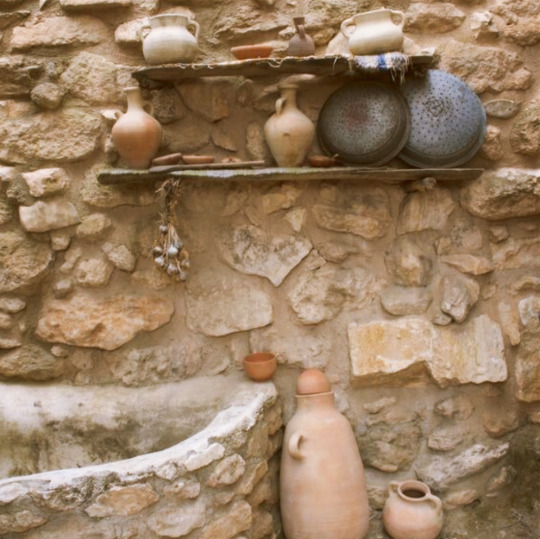

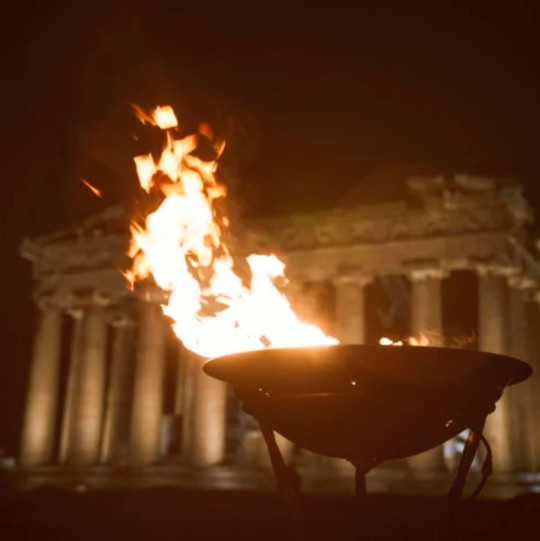

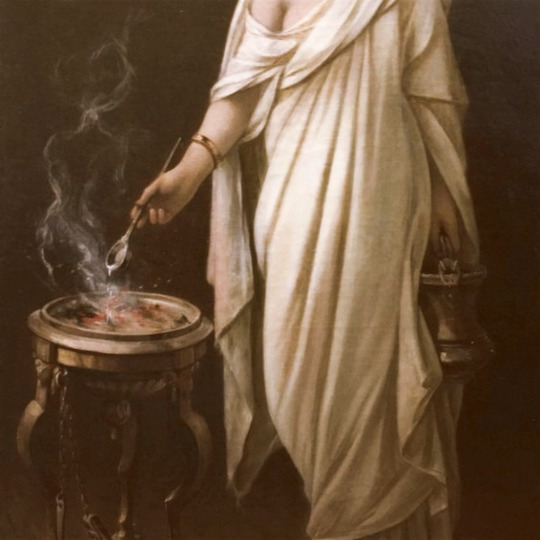


devotional moodboard for Hestia, goddess of the hearth
In thee the Gods have fixed their dwelling place; strong, stable basis of the mortal race. Eternal, much formed, ever florid queen, laughing and blessed, and of lovely mien.
#devotional moodboard#e-offering#hestia#hestia worship#hellenic polytheism#greek mythology#hellenic deities#moodboard#helpol#hestia 🔥
148 notes
·
View notes
Text
odysseus is generally seen as 'morally ambiguous' due to his not always being seen as the best of people- but this is a very modern and feminist take, and whilst nothing is inherently wrong with the idea of feminist takes and retellings, it skews what we have and already know of the myths, and this can be seen most predominantly in the character of odysseus. odysseus is two things:
- not meant to a hero
- not meant to be good
he is written as a man faced with impossible odds, and who loses some- if not all- of his morality in doing so. BUT where does the idea of him being 'bad' come from? the penelopiad by margaret atwood, a woman known for being quite vitriolic towards men of any kind. in recent years, people have picked up on three major things from the odyssey:
- the hanging of the maids
- odysseus cheating on his wife
- odysseus going mad at the end
NOW, to break it into points:
the hanging of the maids is so often seen in a feminist light due to margaret atwood, where odysseus is painted as some cruel, vile, disgusting predator who loathes women. this isn't true to the odyssey AT ALL. in the odyssey it is explicitly stated by the nurse that raised telemachus: 'i shall single out those who betrayed you, my lord' and by one of the maids herself- melantho: 'if we sleep with the suitors, when they become king we will be in favour with him.' and THIS is why he killed the maids. not because he was insane, not because he was bad, but because they had betrayed not just him- but his wife. not all the maids were killed, only those who slept with the suitors. the argument most often used for this is that the women couldn't say no, but this goes against what the maids themselves say in the odyssey when they believe no one to be watching.
odysseus cheating on his wife HE DIDN'T. but he is a man, and as a man, he cannot be raped. he is a terrible man for sleeping with circe and calypso when he could have- as epic decides to say- say no. which is untrue!! these are goddesses. titanesses. circe is the daughter of helios, and calypso is daughter of atlas. they could overpower him simply by looking at him. circe turned his men to pigs, even with the moly she could have easily done the same- or worse- to him. the idea of him choosing to and being unfaithful stems from madeline miller's, Circe which whilst not inherently bad, goes out of its way to put all men in a terrible light, because the heroes deserves no rights in feminist retellings. odysseus wanted to say no, but could not as hermes explicitly told him he couldn't. on the flip side, calypso threatens, ensnares him and only releases him when told to by hermes and the council of the gods. in the odyssey it is literally stated: 'and odysseus stayed on the shores weeping for home before joining the nymph in her bed.' he did not WANT to sleep with calypso, but was left with no other choice but to do so. this is a recurring theme for calypso.
but he is blamed due to his gender, and the idea of 'feminism' and 'patriarchy'.
and now, the real reason for odysseus being seen badly:
the telegony the telegony is a myth written after the odyssey with telegonus- son of circe and odysseus- as the main character. in this he travels to find his father and meet him, but accidentally kills him on the shore. (peneleope marries telegonus, and circe marries telemachus) but this is where the idea of odysseus' insanity comes from. in the telegony, it is stated he went mad after the war, and couldn't survive without bloodshed, and so he went out seeking war, and women, and battle, and went mad in this.
the statement: 'generous to odysseus' is wholly unfair, because he is a man forced to lose everything, assaulted, violated, tortured and imprisoned with no hope of survival. he goes to war knowing he won't return for 20 years, won't see his wife, and won't watch his son grow. he is a man not a god, or a demigod. he's just some dude doing his best.
#greek mythology#tagamemnon#odysseus#the odyssey#the iliad#diomedes#homer#odypen#calypso#circe#mythos
96 notes
·
View notes